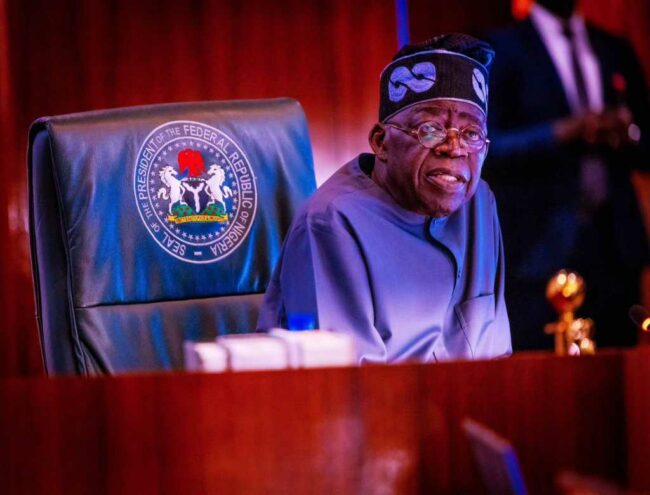President Bola Tinubu has asserted that the idea of state policing is not just a mere policy proposal but a potential milestone in the evolution of the nation’s law enforcement framework.
Speaking when he declared open a one-day National Dialogue on State Policing with the theme, “Pathways to Peace: Reimagining Policing in Nigeria,” in Abuja on Monday, he said the framework will create the opportunity to fashion law enforcement in a manner that closely addresses the various demands of communities across the country.
Represented by the Vice President, Kashim Shettima, he reiterated his unwavering resolve to reform the Nigeria Police Force and enhance security across Nigeria. According to Shettima, the Tinubu administration is much aware of the complex security issues confronting Nigeria, and as such is continually developing and refining its strategies and methods to address the challenges effectively.
Declaring the president’s resolve to change the nation’s security narrative, the vice president said, “The commitment of the administration of President Tinubu to reform the police force and enhance security at both the national and state levels is unwavering.
“We view the outcomes of today’s deliberations as crucial inputs that will guide the government’s actions towards reforming the institution of the police and achieving a safer and more secure Nigeria.”
The president’s representative implored participants at the National Dialogue on State Policing to look at the idea of state policing from multiple angles, saying that President Tinubu deserves commendation for being open and proactive towards the idea of reforming and decentralising the police force.
ALSO READ:Alake commends Nasarawa govt on lithium factory, mining development
He stated: “In our deliberations, let us consider the implications of state policing from multiple perspectives. We must evaluate its potential to improve response times to emergencies, adapt to specific local challenges, and increase accountability. At the same time, we must address concerns related to the standardisation of training, oversight, and the safeguarding of civil liberties.
“Our Dialogue today should also be seen as an opportunity to listen, understand, and propose solutions that bridge gaps. It is essential that this forum is not the end but the beginning of an ongoing conversation on the issue of police and security sector reform in our country.”
Shettima expressed delight that the 10th House of Representatives under Speaker Tajudeen Abbas keyed into the idea of state policing, noting that “the involvement of the legislature in executive reform proposals ensures continuity and synergy.
“Let us use this opportunity to engage and explore every option with the seriousness and diligence they demand. The President is committed to listening to your recommendations and insights, invaluable to shaping the policies that will lead us toward a more secure and just society,” he added.
